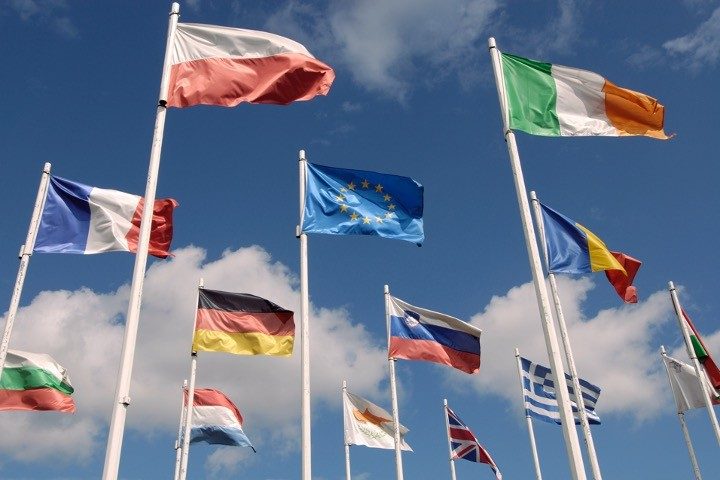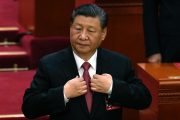
SINGAPORE — On February 13, Hungarian Minister of Foreign Affairs Péter Szijjártó vehemently slammed the European Parliament, claiming, among other things, that the institution lacks any credibility amid its recent corruption scandals.
In an interview with Hungary’s Kossuth Rádió, Szijjártó said that “The credibility of the European Parliament is practically zero,” elaborating that “the latest corruption issues have clearly shown that we are speaking about one of the world’s most corrupt organizations,” the news portal Vadhajtāsok reported.
The foreign minister’s statements came in light of the Qatargate scandal that rocked the parliament. Earlier this month, Andrea Cozzolino and Marc Tarabella, two leftist MEPs (Members of European Parliament) from the S&D group, had their parliamentary immunities removed as the investigation into one of the bloc’s most widespread corruption scandals stepped up.
The aforementioned MEPs are only two of many suspects in the scandal. Greek Vice President of the European Parliament Eva Kaili, her partner Francesco Giorgi, Italian former MEP Pier Antonio Panzeri, and a lobbyist were accused of taking over €1.5 million in bribes. The largest amount, about €600,000 in cash, was discovered in the Brussels home of Panzeri.
Furthermore, Szijjártó added, “very few of the decisions, statements, and resolutions of the European Parliament have in fact helped Europe,” and decisions taken by the EU legislature were “mostly harmful to Europe.”
Alluding to the Russian-Ukraine crisis, Szijjártó asserted that the European Union’s continued arms support to Ukraine actually has extended the armed conflict rather than defused it, thus undermining the interests of all European nations:
Everyone is well aware that the vicinity of the war causes many problems and challenges here in Europe. It is also clear that the same negative impacts are not present several thousand kilometers or an ocean away, but we here in Europe are constantly faced with these challenges.
Szijjártó also lampooned the various sanctions packages the EU has imposed against Russia, stating that they have taken a huge toll on the European economy while Russia has remained more immune to these restrictions. “The sanctioning measures have completely failed,” he said, adding that the 10th package of sanctions will only be capable of “causing further damage to us Europeans — similar to the previous nine.”
He elaborated: “Today, this is a regional war with a global impact, and we must prevent it from becoming a global war. Stepping out from the trans-Atlantic bubble, it is very obvious that the voices in favor of peace and the desire for peace are much louder than the mainstream liberal media in the trans-Atlantic world would have us believe.”
On February 9, globalist Ukrainian President Volodymyr Zelensky addressed the European Parliament and directed attention to the role of ordinary European citizens in backing his country:
The destiny of Europe, the fate of Europe has never rested on politicians, and that should not be the illusion now. Each and every one of us matter[s], each and every one of you are [sic] strong, each and every one of you is capable of impacting our common outcome, our common victory.
Elaborating, Zelensky called Russia an “existential” threat to Ukraine as well as Europe:
Today, during the meeting of the European Council, I’ll be able to thank the heads of state and the governments, for the decisions that over the course of last year, allowed our continent to do what the previous wave of leaders considered impossible. Europe at last is relieving itself of its ruinous dependence on Russian fossil fuels, Europe is cleansing itself of the corrupting influence of Russian oligarchic business, Europe is defending itself from the infiltration of the agents of the Russian secret services who looked at Europe as a hunting ground of opponents of the Russian regime.
Based on data from RussiaFossilTracker, although EU imports of Russian oil and gas have been steadily reduced since the onset of the Ukraine conflict, the EU still remains the biggest importer of Russian hydrocarbons. Similarly, it seems that only some of the 45 Western banks that have Russian subsidiaries have left the country. At the moment, it thus looks like the EU and the Russian Federation still harbor economic relations to a considerable extent.
Concluding his speech, Zelensky alluded to the greatly enhanced package of military aid to be sent to Ukraine, including a recent pledge from Germany, Denmark, and the Netherlands to deploy over a hundred Leopard tanks in the coming months. To boot, Zelensky maintained his stance that Ukraine’s future could be found in a strong EU:
For the first time in its history the European Union is providing military assistance at such a scale, and I see such a positive assessment of reforms in a European country that is both fighting and defending itself, and is modernizing its institutions simultaneously. Ukraine is going to be a member of a European Union that is winning.
In an interview with The European Conservative, Charlie Weimers, MEP for the Sweden Democrats and the ECR Group, said:
President Zelensky spoke with passion and conviction about the need to defeat Russian aggression and to defend national sovereignty. I hope his request for more heavy weapons will be heard in the European Parliament and the other institutions.
Not every European politician agreed with Zelensky on the rosy prospects of the EU and the European Parliament, however. Hungarian Prime Minister Viktor Orbán instead urged for the abolition of the European Parliament. Based on reports from Politico.eu, Orbán said that the recent scandal in the Parliament revealed that anti-corruption safeguards have “failed miserably.”
The news platform Euronews.com documented Orbán as castigating the European Parliament for the scandal that reportedly involved Qatar and using a phrase from former U.S. President Donald Trump, stating that it was time to “drain the swamp” in Brussels. “The Hungarians would like for the European Parliament to be dissolved in its current form,” Orbán said. “The degree to which the reputation of the European Parliament in Hungary has been damaged is easy to answer: not at all, because it couldn’t have been any lower.” In lieu of the existing parliament, the Hungarian prime minister suggested a delegate-based model that would return power to EU member states.
To make matters more complicated, the friction between Budapest and Brussels has been exacerbated by the Hungarian government’s lobbying against sanctions on Moscow for Russian actions in Ukraine.
Orbán, deemed to be one of Russian President Vladimir Putin’s closest EU allies, said sanctions have failed in forcing the Kremlin to end the conflict. Instead, these sanctions have hurt European economies more than they have Moscow. Orbán had previously predicted that 2023 would pose “a challenge for almost all European countries to avoid an economic downturn or recession resulting directly from war and European participation in the war, called sanctions.”
“If it were up to us, there would not be a sanctions policy,” he asserted, adding that he would not back any additional sanctions against Russia in the future, but would not obstruct the EU from approving them, either. “It is not in our interest to permanently divide the European and Russian economies into two, so we are trying to save what can be saved from our economic cooperation with the Russians,” he said.
The so-called Qatargate scandal revolves around an investigation of supposed corruption involving some 60 members of the European Parliament. The story emerged when five EU Parliament members were arrested on Dec. 9 last year.
CNBC.com reported that one of the accused, Parliament Vice President Eva Kaili, was removed from her leadership position “after Belgian authorities arrested her” on Dec. 12. The arrest was part of a four-month-long investigation into “corruption, money laundering and criminal organization.”
The Washington Examiner indicated that Kaili is one of three suspects accused of taking “large bribes.” The corruption probe has also impacted the International Trade Union Confederation (ITUC), whose secretary-general, Luca Visentini, recently resigned amid denunciations that he had taken money from a person key to the Qatargate investigation.



